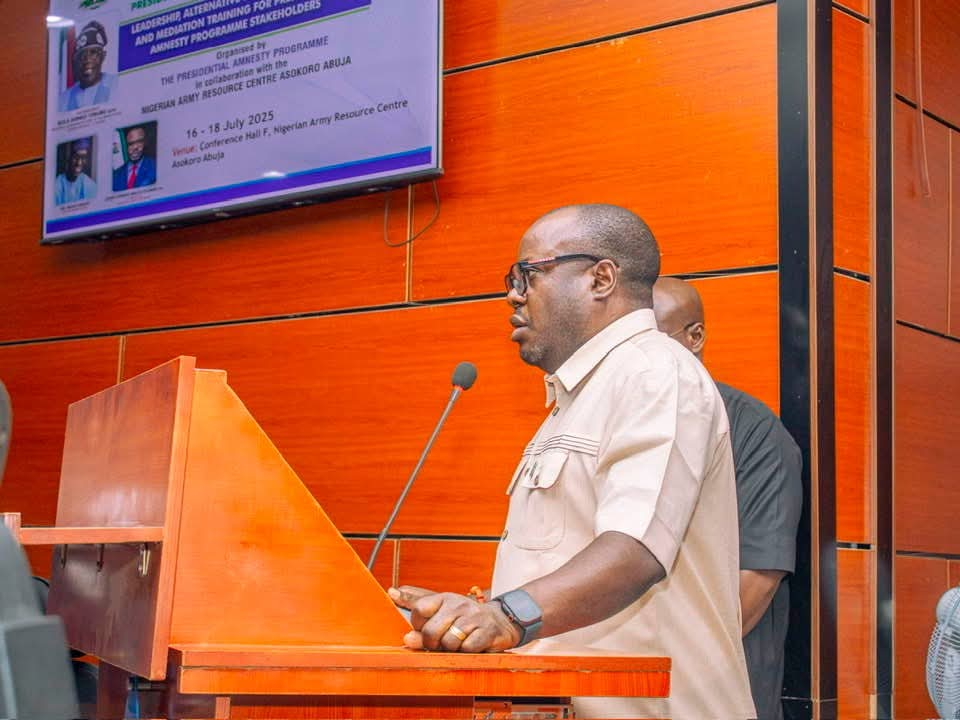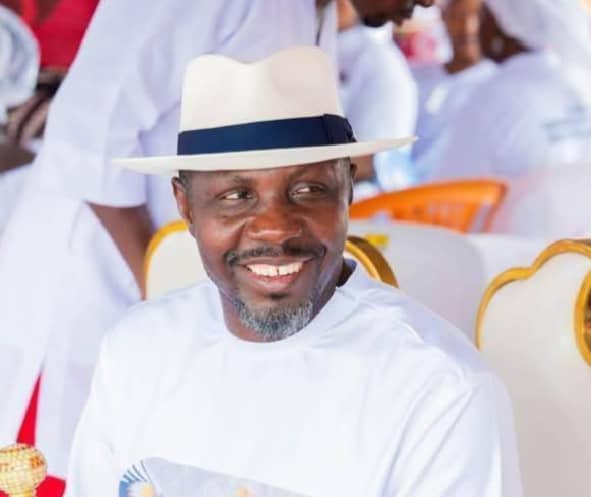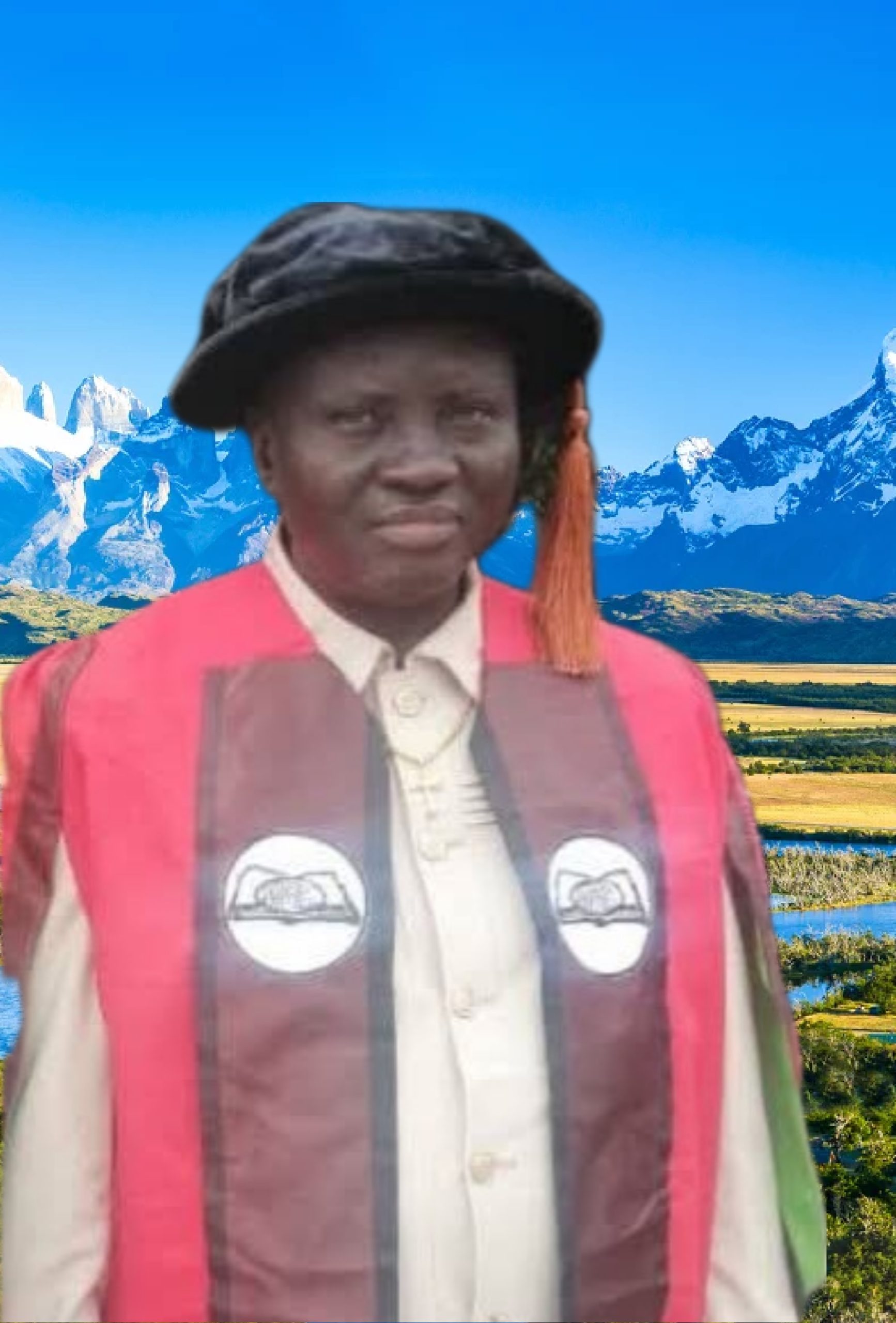Columns
FELLOW NIGERIANS, FORGET GOVTS, FEND FOR YOURSELVES

FELLOW NIGERIANS, FORGET GOVTS, FEND FOR YOURSELVES
by Dele Sobowale
Fellow Nigerians, forget govts, fend for yourselves, by Dele Sobowale
“I didn’t come to look for money and exploit the situation; I came to work. I asked for the votes, and Nigerians gave them to me” – President Bola Tinubu, September 20, 2024.
Small correction is needed before getting to the heart of the matter. Nigerians gave candidate Tinubu 33 per cent of their votes; 67 per cent did not want him. INEC and the judiciary finished the job for him. Furthermore, no President has ever confessed that he was looking for money. But, why are they always far richer after than before going into office? To the best of my knowledge, Tinubu had no AIRBUS 320, even Tokunbo, before he became President. That costs a lot of money! One of the best attributes of great leaders is leadership by example.
LEADERSHIP AND EXAMPLES
“He that gives good advice builds with one hand. He that gives good counsel and example builds with both hands. But, he that gives good admonition, and bad examples, builds with one hand and pulls down with the other” – Francis Bacon, 1561-1626, VANGUARD BOOK OF QUOTATIONS, p5, online.
Two weeks ago, Tinubu announced that “there is no free beer parlour anymore.” Most Nigerians will readily agree that appointing 48 Ministers, most with next to nothing to do, is akin to opening the biggest beer parlour in the nation. One would have expected the President to close those parlours. The Ministry of Petroleum Resources and its Departments and Agencies are the worst performing. Together, they have kept four idle scraps called refineries at great cost to the nation.
In fact, as a former Marketing Manager of three breweries in Nigeria, and very familiar with the operation of beer parlours, I can state authoritatively that 90 per cent of beer parlours are better managed than the Nigerian National Petroleum Company Limited, NNPCL. If they are not, they would have been out of business a long time ago. NNPCL collected billions to revive the refineries without success. Madam Beer Parlour has more sense. Everybody can remember the same promise made last year until it was time for the annual Holy Pilgrimage; when N91 billion was suddenly released. Few can forget the plane load of Nigerian officials who attended an international event to which China and the USA sent less than two dozen people. Talk is always cheap.
WHY NIGERIANS SHOULD FORGET GOVERNMENTS — N/E FIRST
The North-East zone of Nigeria, perennially the poorest of the six, is so distant from Lagos and Abuja that few of our media establishments – print, electronic or online – pay attention to it until something extra-ordinary occurs. Most often, it is a tragedy. Maiduguri, the Borno State capital, was in the news on account of a disaster which is still unfolding. Water from the Alau Dam, situated about 15 kilometres from the city, not only flooded the city, but also submerged thousands of buildings and structures. According to ReliefWeb, so far, about 40 people have been confirmed dead, 400,000 displaced and over one million people affected so far. The reader should bear in mind that several buildings are still partly under water and hundreds of people are still missing. Crops and stored food items have also been washed away. So, we don’t have a full tally of the damages.
“Only one week before the flooding, media across the country reported the Borno State government assuring – this word again – the country and residents of the city that all was well and there is nothing to worry about” – Suleiman A Suleiman, THE WHITE PAPER, Daily Trust, September 23, 2024.
Ordinarily, the disaster would have been dismissed as an act of God – the sort that can happen anywhere. But, after reading Dr Suleiman’s article, it became obvious that this was a tragedy foretold, preventable and which could have cost far less if it was averted by governments. Now, the entire nation will pay dearly for the serious dereliction of their duties by those elected and appointed to protect citizens from such disasters. Suleiman pronounced, and I absolutely agree, that “For many Nigerians in Maiduguri and environs ravaged by flood in the week before last, life would never be the same again.” No economist can possibly disagree. In fact, it might take decades for Maiduguri’s economy to recover; for reasons to be explained shortly. First, there is a need to examine governments’ role in this catastrophe; because several mini-tragedies have occurred which are creating a pattern of destruction all over Nigeria right now.
ROADS AND OTHER INFRASTRUCTURES
Just in case you think that the Maiduguri incident was one off. Permit me to draw your attention to one building up on the Asaba gateway to Onitsha in the South-East. Until the Second Niger Bridge was opened, the old Niger Bridge was the shortest gateway to several states in the South-South, South-East, Benue, parts of Kogi, Nasarawa and the North-East from Lagos. The pictures on page 12 of the paper tell more than a million words the story of absolute neglect by the FG since Buhari became President, and my brother Fashola was his Minister of Works. Nobody needs to be told that Engineer David Umahi, the current Minister of Works, has been too busy working on the road to nowhere from Lagos to Calabar to serve his own people. There is a bridge at the end of that road; and that entire area will soon be visited by flood water starting from Lagdo Dam in Cameroon. Just pray; because no government is thinking of the problems ahead of us.
Meanwhile, in the North, the consequences of neglecting roads and bridges are already creating havoc everywhere. The collapse of six bridges, just six, has already impoverished the people as much as bandits, hoodlums, kidnappers and herdsmen have done. Read first and understand the economic implications later.
“For instance, from Maiduguri to Geidam was just N6, 000 before the bridge was cut off, but we now charge N16,000 to cover the cost of an additional 350 kilometres…Maiduguri to Kano is now N20,000 against the N12,000 we charged previously, Geidam to Damaturu was N4,000, but, it’s now N13,000…” That was part of the report from officials of the National Union of Road Transport Workers, NURTW. You don’t need to know the cities mentioned as I do, having lived and worked in the zone. Just follow the transport fare increases; then remember that passengers and food products follow the same routes, and you will then understand why food prices will remain stubbornly high for a long time to come. Also, remember that what has happened to bridges and roads in the North-East has occurred in all the zones of Nigeria. With very few exceptions, the problems were man-made. Designers of dams, bridges and roads invariably recommend maintenance schedules for safety. Just as invariably, Nigerian governments ignore the planned maintenance schedules until Alau Dam collapsed.
ADVICE GOV ZULUM AND THE PEOPLE ON DONATIONS
“Telling the truth and accepting the truth has been our major problem in Nigeria. Some people will never tell you the truth when you are in power, and, honestly, many of us in power also do not want to hear the truth” – Professor Zulum, Governor of Borno State, 2021.
Governor Zulum, I volunteer to tell you the truth while in power. This disaster will reveal to the whole world whether or not Zulum is a hypocrite or not. There are occasions when only the hard truths must be faced. First and foremost, Zulum must admit responsibility for this tragedy; it occurred during his fifth year and three months in office and despite assurances given that all was well. Second, in more civilised nations, heads would have rolled – of officials who should have raised alarms but failed to do so; even if they were afraid of telling the governor the truth.
Zulum has appeared in public wearing the solemn look of Chief Mourner, with begging bowl in hand, and pledges have been pouring in. In that connection, let me advise the Governor and the people. One, they might discover that not all pledges will be redeemed. One clever chap, now a Senator, allegedly donated newspaper cuttings in naira sizes to University of Maiduguri in the 1980s!! So, the State Government should keep a meticulous record of ACTUAL payments. SERAP is watching and counting. Finally, N21 billion will never be sufficient to take care of everybody; not even N210 billion or N2.1 trillion. Government must let the people know how limited the intervention can be. The people of Maiduguri and Nigeria must accept the truth that governments cannot help most of us. We should just fend for ourselves as best as we can.
NIGERIA GOES TO THE UN WITH BEGGING BOWL AGAIN
Columns
Chief Denis Otuaro, the Guiding Star of PAP

By: Professor Binebai
The Niger Delta has found a beacon of hope in Chief Dr. Dennis Otuaro, a leader of unimpeachable integrity, courage, and vision. As the helm of the Presidential Amnesty Programme (PAP), he has emerged as a champion of transformation, inspiring a region and a nation with his unwavering commitment to empowerment and progress.
In the realm of Nigerian leadership, there are those who leave an indelible mark on the sands of time, and Chief Dr. Dennis Otuaro is one such luminary. As the helm of the Presidential Amnesty Programme (PAP), he has etched a narrative of hope, redemption, and triumph, illuminating the path for the people of the Niger Delta. This tribute is a celebration of his extraordinary leadership, vision, and unwavering commitment to the cause of empowering the youths and transforming the region.
Chief Denis Otuaro’s stewardship of the Presidential Amnesty Programme (PAP) has indeed been a renaissance, a majestic sunrise after a long, dark night, as he infuses the initiative with the radiance of a new dawn.
Like the mythical Anansi, the wise and cunning spider of West African folklore, Otuaro’s leadership has woven an intricate web of hope and opportunity, capturing the challenges of the Niger Delta and transforming them into a rich mosaic of promise and progress. His vision, akin to that of the venerable Oracle of Delphi, has deciphered the complexities of post-conflict reconstruction, guiding the demobilised youths through the labyrinth of uncertainty, and into the bright light of empowerment and redemption.
Otuaro’s journey has been sustained by a resolute commitment to the cause, his leadership style a masterful blend of courage, wisdom, and compassion. His tenure has been marked by a symphony of progress, as the PAP, under his guidance, has orchestrated a harmonious balance of pacifism and pragmatism, transforming the region into a veritable Garden of Eden.
Like Athena, the Greek goddess of wisdom, Otuaro wields the power of transformation, his touch turning the arid landscape of despair into a lush oasis of hope and prosperity. His leadership has become a byword for sagacity, a testament to the transformative power of vision, courage, and compassion.
In the pantheon of Nigerian leaders, Otuaro’s name shall be etched alongside the greats, his legacy a shining testament to the indomitable human spirit, as he continues to weave a new narrative of hope, redemption, and triumph for the people of the Niger Delta.
The Niger Delta has found a leader of repute, a leader of courage, a leader of transformation, a leader of goodwill in the PAP. Let egocentric economic buccaneers and demonic agencies stop their campaign of calumny against this leader of glory.
To those who seek to undermine his efforts, we say: let envy and malice be silenced! Let the progress of the Niger Delta be the benchmark for greatness! Let Otuaro’s leadership be the inspiration for a new generation of leaders!
Columns
A Legendary Legacy: The Enduring Odyssey of High Chief (Dr.) Government Oweizide Ekpemupolo

By: Professor Ben Binebai
In the realm of Nigerian leadership, one name resonates with mythical significance – High Chief (Dr.) Government Oweizide Ekpemupolo, affectionately known as Tompolo. Born on 12 April 1971, in Warri, Delta State, Tompolo has etched his name in the annals of history, leaving an indelible mark on the Niger Delta region. As a former militant commander of the Movement for the Emancipation of the Niger Delta (MEND) and chief priest of the Egbesu deity, he has navigated the treacherous waters of war and peace, leveraging his remarkable journey to bring succour and development to his people.
Tompolo’s metamorphosis from a militant leader to a peace advocate is a testament to his unwavering commitment to the progress of the Niger Delta. His decision to embrace the Amnesty Programme in 2009 marked a turning point, as he laid down arms and picked up the mantle of transformation. Today, he is revered as a hero, celebrated for taming the turbulent waters of the Creek boys and settling major political crises in the region. By putting the Ijaw image on the Nigerian map, Tompolo has redefined the narrative, showcasing the rich cultural heritage and resilience of the Ijaw people to the world.
A nationalist and statesman emerging from the boiling pot of agitation in the Niger Delta, Tompolo has consistently demonstrated his commitment to the development and progress of his people. His agency operates in close collaboration with the government, working tirelessly to implement projects and initiatives that benefit the Niger Delta region. His leadership style is characterised by quiet strength, strategic thinking, and an unwavering commitment to the progress of his people. His efforts have earned him recognition and accolades from various quarters, solidifying his position as a dependable pillar of the Ijaw nation.
As the last voice of the Ijaw nation, Tompolo’s legacy continues to inspire hope and progress for generations to come. With institutions established for national economic stability and prosperity, his impact will be felt for years to come. Tompolo’s story serves as a beacon of hope and resilience, inspiring his people to strive for greatness.
God bless this emergent leader of the Ijaw nation.
Columns
YOUNA: WARRI CRIES FOR PEACE AND JUJUSTICE

By: Ben Binebai
In the Niger Delta region of Nigeria, a city cries out for peace, justice, and unity. Warri, a land of rich cultural heritage and economic significance, has been plagued by recurring crises, sparked by provocative actions and claims of ownership by the Itsekiri group. The cry of Warri is a call to action, a reminder that our diversity is a strength, not a weakness, and that our common humanity is worth fighting for.
The Ijaw, Urhobo, and Itsekiri communities have coexisted in Warri for centuries, sharing a rich cultural heritage and a deep connection to the land. Occasionally uniting but deeply disunited because power and hegemony have often overshadowed their shared humanity, the people of Warri yearn for a future where their differences are celebrated, and their commonalities are the foundation of their unity. Warri’s significance extends beyond its current boundaries, as it has been a hub of economic and cultural activity for centuries. Before 1952, Warri was a thriving commercial centre, with the Ijaw, Urhobo, and Itsekiri communities contributing to its growth and development.
The city’s strategic location and access to the Niger Delta’s vast resources made it an attractive location for trade and commerce. Understanding Warri’s rich history and cultural heritage is essential to finding a lasting solution to the crisis.
It is time for truth to prevail to offer a lasting solution to the Warri crisis. The canoe of godfatherism should be withdrawn for the rule of law and for peace and progress to triumph.
The lie of exclusive ownership of Warri resists termination due to several factors, including:
Outdated court judgments: The Itsekiri establishment continues to rely on outdated court judgments, such as the 1925 judgment, to support their claim of ownership, despite subsequent judgments repudiating its validity.
Lack of political will: Successive governments have failed to address the problem and take the right and just decision, allowing the crisis to persist.
Absolutist claims: The Itsekiri claim is absolutist, while the Urhobo and Ijaw claims are limited, recognising ownership of portions of Warri by other communities.
Historical narratives can be deeply ingrained*: People’s understanding of their history and identity can be shaped by long-standing narratives, making it hard to change their perspectives.
Emotions and biases can override facts: When emotions and biases are strongly tied to a particular narrative, people may resist changing their views, even in the face of contradictory evidence.
Power dynamics can influence narrative control: Those in positions of power may use their influence to shape and maintain certain narratives, making it harder to correct lies and misconceptions.
Moreover, leadership plays a crucial role in shaping the future of Warri. As the saying goes, “When leaders refuse to embrace sacrifice, society dies.” Leaders who prioritise the greater good, make tough decisions, and invest in the future can help build a more harmonious and prosperous society. It is time for the leaders of Warri to put the needs of their people first and work towards a brighter future.
The cry of Warri is a call to action, a reminder that our diversity is a strength, not a weakness. Let us work towards a brighter, more harmonious future, where the beauty of our differences is celebrated, and our common humanity is cherished. May the cry of Warri be heard, and may we rise to the challenge of building a better tomorrow for all its people.
